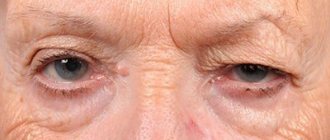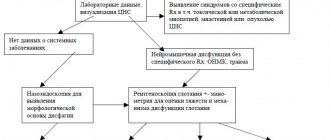Disorientation in space can be both a consequence of neurological diseases and their symptom. If we talk about the reasons for this phenomenon, then first of all let’s figure out what it is. Disorientation in space is usually also accompanied by temporary disorientation, that is, at such moments a person cannot understand where he is and what day or even year it is. This condition is dangerous both for the person himself and for others. After all, loss of orientation in space is often accompanied by an attack of panic, and in this case it is difficult to say what a person is capable of.
Loss of orientation in space: reasons
It is important to know the causes of disorientation in order to provide first aid in an emergency.
What could be the reason for the loss of disorientation in space? There are several of them:
- Alzheimer's disease;
- meningitis;
- renal failure;
- hypothyroidism; schizophrenia;
- hydrocephalus;
- epilepsy;
- Creutzfeldt-Jakob disease;
- manic-depressive disorders;
- encephalitis;
- hypoglycemia;
- brain tumors and cysts.
Note that the causes of disorientation can be not only this kind of illness, but also:
- altitude sickness;
- alcohol abuse;
- taking drugs or certain medications (tranquilizers, antiallergic drugs, painkillers, anti-inflammatory drugs, muscle relaxants);
- hypovitaminosis;
- dehydration;
- hypothermia;
- heatstroke;
- traumatic brain injury;
- infection;
- metabolic disorders;
- post-traumatic psychosis.
With improper nutrition, namely: insufficient intake of nutrients into the body, the brain begins to starve just like the body. Confusion and low blood sugar levels, and as a result, disorientation in space, are some of the consequences of improper diets.
In any case, and regardless of the reasons for the occurrence of such a condition, you should first contact a neurologist. Only a doctor, by conducting an examination and prescribing tests, can diagnose the true causes of disorientation in space.
Serious illnesses
Confusion and temporary loss of orientation can be symptoms of very serious illnesses. If disorientation is accompanied by weakness in the limbs and slurred speech, we can talk about a transient ischemic attack or stroke.
If disorientation is accompanied by a high temperature, there is likely a severe infection in the body.
In any of the above cases, you should immediately consult a doctor.
Clinical Brain Institute Rating: 4/5 — 12 votes
Share article on social networks
Symptoms of spatial disorientation
There is a classification of orientation disorders, one of which is spatial disorientation; accordingly, there are general symptoms of loss of orientation, and there are those related specifically to loss of disorientation in space.
We recommend reading:
How to choose equipment for a winter hike
Are common:
- dizziness;
- memory problems;
- sleep disturbance;
- sudden change of mood.
Individual:
- a person’s inability to determine where he is, down to the country, and what time it is, up to a year, and also to identify himself as an individual: some data about himself is also erased from memory;
- a sudden wave of fear for no reason, close to a panic attack;
- a state of apathy that can unexpectedly turn into a state of aggression.
Is spatial dementia a diagnosis?
“Topographic cretinism” or “spatial dementia” is not a medical diagnosis, but an ironic name for the psychological feature of some people who easily lose the ability to navigate the terrain. Sometimes such a trait only causes a smile, and sometimes it leads to bewilderment. It all depends on how brightly it manifests itself.
Well, yes, Christopher Columbus, having discovered America, until the end of his days was in the holy confidence that he had sailed to India - but he still got lost on the scale of the entire planet. And the maps at that time were very approximate. But if a person has to figure out for a long time how to find his street while being on the next one, then this, you see, can create serious difficulties in life.
So what affects the ability to navigate in space?
Dizziness
One of the first and main symptoms accompanying disorientation in space. It can intensify with a sharp change in body position or turning the head. Internal causes include improper blood flow, the appearance of which is caused by an uncomfortable position when sitting or lying down. It can cause nausea, vomiting, darkening of the eyes, and pain in the forehead. In any case, this symptom should never be ignored: in addition to spatiotemporal disorientation, this can be caused by a number of neurological diseases. Especially if this happens regularly.
What else leads to the problem
In addition to the general reasons that lead to the fact that many of us have difficulty finding our way around, there are also specific ones. They often play a very important role in the development of the problem.
- Topographic cretinism is inherited. That is, if the parents could not figure out how to take a shortcut, then their children will have to take long roads.
- Childhood trauma. If for some reason a child is afraid of getting lost or forgotten on an unfamiliar street, then even as an adult his brain will turn on a feeling of panic whenever he is around a foreign area.
- Emotionality. By the way, as soon as panic comes to the fore, a person loses all abilities for logical thinking and memorization. This means that excessive emotionality is a serious enemy of topographical abilities.
- Laziness or lack of motivation. It often turns out that as soon as we are faced with an urgent need to find an address, we cope with it perfectly on our own, and the rest of the time we are simply too lazy to remember.
How to get rid of disorientation and confusion
First of all, you need to sit down and even out your breathing. It’s good if there are someone close to you or just caring passers-by who will help you get to the nearest medical center. Only an experienced doctor can diagnose the cause and how to deal with it. The treatment methodology depends on the causes of disorientation in space.
Dizziness
The first thing you need to do is answer all the doctor’s questions as honestly as possible: is this the first time you’ve had this, have you had any injuries, are you on any strict diet, have you previously been diagnosed with any neurological disorders. The doctor will prescribe a series of tests and studies, such as MRI or ultrasound, to most accurately diagnose the cause of loss of orientation in space. And this will be the basis for prescribing treatment.
If the symptoms are neurological, then treatment usually begins with ensuring complete rest for the patient. It is necessary to isolate it from surrounding stress and nervous stimuli and provide it with proper care. Next, prescribe medications: antidepressants, sedatives, antipsychotics, vitamins. Let us remind you that all this is taken strictly in accordance with the doctor’s recommendations; you absolutely cannot calculate the dosage and frequency of administration on your own! Otherwise, the situation may only get worse.
We recommend reading:
Stages of registering real estate in Turkey
If confusion is caused by external factors, such as a head injury, it is necessary to check whether it is a symptom of, for example, a concussion. If the problem is the wrong diet, you need to eat something high in calories and high in glucose. If this is due to taking medications, change the drug to an analogue or just something else and be sure to monitor the body’s reaction to taking it.
Loss of orientation
If this is the body’s reaction to alcohol, then it is better to refrain from drinking it completely, otherwise next time the consequences could be much worse. And take vitamins that strengthen the walls of the blood vessels in the brain. Which ones exactly - check with your doctor or pharmacist at the pharmacy. If there is an infection, confusion may be caused by a high fever. In this case, it is the infection itself that needs to be treated; ordinary antipyretics cannot achieve the desired effect; it is better to combine them with antiviral or antibiotics, depending on the type of disease.
In any case, so as not to cause loss of orientation in space, remember: a doctor and only a doctor can prescribe the correct treatment for you. Self-medication not only may not help, but can also be extremely destructive for your body.
Author of the publication
offline 3 years
Nika
10
I am interested in hiking and traveling, photography and videography. I have been going hiking since childhood. The whole family went and went - sometimes to the sea, then to the river, to the lake, to the forest. There was a time when we spent a whole month in the forest. We lived in tents and cooked over fires. This is probably why I am still drawn to the forest and, in general, to nature. I travel regularly. About three trips a year for 10-15 days and many 2 and 3 day hikes.
Comments: 0Publications: 668Registration: 10/23/2018
Nika Survival in the wild, Medical assistance, Articles
Historical causes of female topographic cretinism
Yes, it’s a shame to admit that something is missing in the brain, but the peculiarities of orientation in representatives of different sexes have evolved over centuries. Indeed, in ancient times, after a long “business trip”, men had to find a quick way to their warm cave. And the future topographical cretinism of the female ancestors was fueled by the fact that they only briefly went out into the nearest forest to pick berries, remembering along the way under which tree there were the most of them, and spent the rest of the time worrying about the hearth and home. This is probably why there are no great geographers among women.
But the man trained his logical right hemisphere for centuries, and it became increasingly easier for him to get used to the terrain and remember landmarks (which was later very useful when capturing new lands).
By the way, left-handed ladies have excellent spatial orientation. But if a left-hander has been retrained, then failures may occur, and all due to the fact that such people subsequently often confuse left and right.
Now let's train!
Topographic cretinism, however, has one good side. It turns out that people who are poorly oriented in space, as a rule, have well-developed visual memory. This means that memorable bright landmarks can always help you find your way: billboards, store signs, unusual houses. But training won't hurt either:
- try to walk more, look for new paths to familiar objects;
- use your navigator as little as possible, although you can always take it with you - this will give you confidence;
- draw a map of a familiar area in your mind - look at your street from above, imagine where and what kind of house is located;
- when you find yourself in an unfamiliar place, try to do the same - if it’s in the same city, try to mentally connect the familiar area with the new one.
How to train your memory
By the way, another cause of topographic cretinism is considered to be chronic lack of sleep and fatigue (and women suffer from it most often). This state of affairs ultimately leads to a disruption in the normal nutrition of brain cells, which, in turn, leads to a deterioration in all types of memory.
To train them and the ability to navigate that depends on it, first, of course, organize your daily routine, and then begin the exercises. To do this, look out the window for 30 seconds, try to remember everything you see - every detail. And then, turning away, retell everything you remember. To do this, you can invite a “judge” who will check the correctness of your description.
In transport, look at the person, and then, closing your eyes, recall every detail of his portrait in your memory. Imagine how he moves, how he speaks, etc. Open your eyes and check if you remember his appearance correctly.
What causes disorientation?
Disorientation can be a symptom of various diseases
It's important to look for other symptoms that accompany confusion
Delirium and dementia
Two common causes of confusion are delirium and dementia.
Delirium is caused by a sudden disruption of brain function. It only lasts for a short period. It can be caused by medications, infections, and injuries.
Something as simple as a change in environment can also cause delusions. For example, some adults may experience hospital delirium after surgery or after intensive care.
Three types of delirium:
- hyperactive
- hypoactive
- mixed
Hyperactive delirium can cause hallucinations and agitated behavior. Hypoactive delirium can cause drowsiness and withdrawn behavior. Mixed delirium can cause both types of behavior.
Delirium is characterized by:
decreased thinking skills, poor attention, hallucinations, abnormal speech behavior or content
Delirium often comes on quickly, resolves within days or weeks, and is variable in nature.
On the other hand, dementia develops more slowly than delirium. It is usually persistent and causes ongoing symptoms. Confusion and short-term memory loss may be some of the early signs of dementia.
Family members can play an important role in helping your doctor diagnose delirium and dementia.
Substances
Confusion can be a side effect of certain substances, including:
- alcohol
- marijuana
- prescription drugs
Withdrawal from certain medications can also cause confusion.
Other reasons
The following physical disorders may cause confusion:
- amnesia
- carbon monoxide poisoning
- cerebral arteritis, or inflammation of the arteries in the brain
- liver cirrhosis and liver failure
- central nervous system infections such as encephalitis or meningitis
- complex partial seizures
- shake
- dehydration
- drug overdose
- abnormalities in the electrolyte
- epilepsy
- fever
- heat-related illnesses
- hypoglycemia or hyperglycemia
- hypothermia when the temperature drops below 35°C
- hypothyroidism or hyperthyroidism
- hypoxia or decreased oxygen supply
- mass brain lesion such as a tumor or hematoma
- mitochondrial disease
- orthostatic hypotension
- renal failure
- Reye's syndrome
- sepsis
- stroke
- vitamin deficiency
- vestibular disorders that affect the inner ear
An emergency may also cause stress or mental distress and confusion.
What to do if someone is disoriented?
You should seek medical attention for someone who is disoriented.
If someone is trying to cope with confusion, including delirium, the following may be helpful:
- Keep track of his medical history. Make sure you have a list of all medications your loved one has taken. Your knowledge of his habits, medical history and symptoms can help the doctor make a diagnosis.
- Try to make the environment familiar. Changing the usual state of affairs can cause disorientation. Objects that remind your loved one of who they are can help restore direction.
- Stay nearby. Your presence can provide reassurance and comfort. Getting to know the person will also help the doctor determine what their normal behavior is.
You should encourage those who are disoriented to seek medical help. Call 911 if they are at risk of harming themselves or others.









